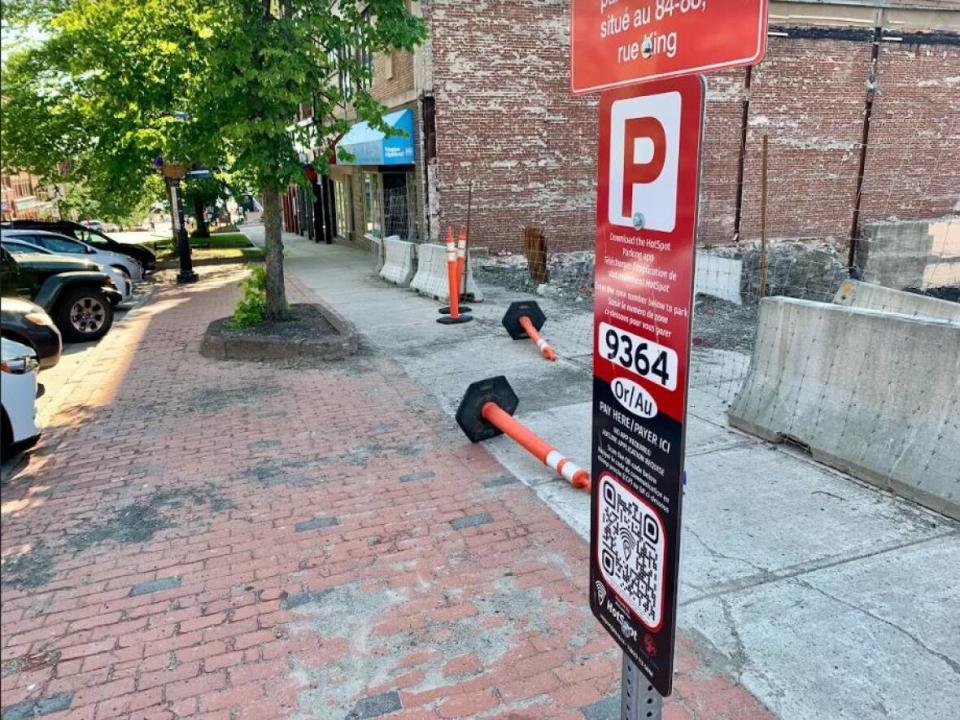Saint John moves to add QR code parking payment option

Parking can be hard to come by in uptown Saint John, but paying for it might soon become easier.
The city is moving toward a QR code payment option that would allow users to pay with a smartphone and a credit card.
The technology will be an additional option to current payment methods, like the HotSpot app, pay-and-display, and coin machines.
Marc Dionne, the director of parking, parks and recreational facilities for Saint John, says the city will be the first in the Maritimes to adopt QR codes for parking payments.
"We certainly have a lot of computer-savvy people who don't mind picking up a phone and using some sort of QR code technology. That being said, there is still a significant portion of the population that wants to use some sort of old-school method," he said.
In March, the city installed a sign with a QR code that users can scan with a smartphone. They are then directed to a website where they can pay for parking.
Dionne said the current pilot project services about a dozen parking spots on King Street and has been well received by the public.
"We've had nothing but great feedback from it, zero maintenance issues, and we've had over 230 people already use the QR code technology," he said.
More payment options coming soon
On Monday, city council unanimously passed the first and second reading of amendments to the city parking bylaw to include QR codes as a method of payment.
The changes would also give staff the go-ahead to purchase 25 QR code signs that would replace about 20 pay-by-plate machines.
Dionne said this would be the beginning of what could be a bigger rollout.
"We will try this out and see how it goes and as it becomes more and more successful we will probably swap out more and more machines," he says.
Dionne said QR technology could also save the city thousands of dollars.
According to a report by the City of Saint John, all parking meters accepting credit cards must have a "tap-to-pay" option by Oct. 1.
"If we updated all of them, that's in the ballpark of $60,000 plus tax," he said.
Instead, the city plans to replace 20 of the machines with QR technology, which Dionne said could save the city $24,000.
Risks associated with QR codes
Natalia Stakhanova, Canada Research Chair in Security and Privacy, said there are potential cybersecurity risks associated with public QR codes that are difficult for the human eye to detect.
"The barcode is not human-readable. You can't really discern what kind of information is there, so you have to trust the technology to decode it for you and decode it correctly, which is where the problem kind of starts," she said.
Stakhanova said it's possible for fraudsters to embed malicious URLs in the QR code.
"This code either takes you to a malicious website where you are asked to put your credentials, or you might be taken to a website where you will be served with malicious software that's going to be loaded onto your phone," she said.
Stakhanova would like to see the city offer security advice for people who use the QR code payment option. For instance, she said the city could recommend downloading certain apps to check QR codes for dangerous content before opening linked sites.
Dionne said the city is keeping safety top of mind.
"We have a meticulous team that will check these signs regularly to keep the public safe," he said.
The third and final reading of the amendments is set to take place when council meets on July 4.

